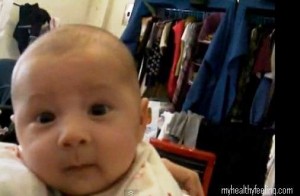Baby keeps getting hiccups
Hiccups are very common especially in newborn babies. Adults even experience hiccups but not as often as infants do. Yet, infant hiccups are very common even when they are still inside their mother’s womb. In general, though, infant hiccups are something you should not worry about because it is totally harmless. Some babies even enjoy it due to the surprise it gives. This is most common to babies below six months old and typically occurs after feeding the baby. Even doctors do not know why hiccups happen more often to babies. But as the baby grows, hiccups sessions will gradually disappear. But, what are hiccups? What are its causes and how do we treat them? The following paragraphs supply answers to these questions. Continue reading.
What are hiccups?
Hiccups refer to the distinctive sound as a result of the tightening of the diaphragm thus closing the vocal cord generating a hic sound. The diaphragm plays an important role to the execution of metabolic and respiratory functions. For instance, the diaphragm’s push-and-pull operation works at regular time gap to air entry-and-exit when inhaling. However, this normal function of the diaphragm will only change if hampered either externally or internally. Thus, when the diaphragm gets irritated, vocal cords will close and when you inhale, it then produces a distinctive hiccup sound.
Causes of Infant or Newborn Hiccups
Infants are highly susceptible to hiccups and the precise cause for these remains unknown. It is assumed that adults and infants develop hiccups similarly. Since adult hiccups are associated to involuntary diaphragm contraction, the same way can also be applied to infant hiccups. For infants, it is believed that the air being swallowed when bottle-feeding causes hiccups. Another possible cause has something to do with nerve regulation on the diaphragm. Besides, hiccups usually take place when the baby is drinking formula milk. And of course, an upset infant is inclined to finish his or her milk quickly which result to hiccups. Different theories arise concerning hiccups but only a few are accepted in the medical aspect and one of these theories indicates that newborn hiccups are indication of premature neurological system.
Treatment for hiccups of newborn baby
Hiccups are absolutely harmless yet, as parents, it is normal to look for some remedy and treatment for this. Well, treatment options for new born hiccups are not available given that hiccups itself is not an emergency situation. However, you can do something to manage hiccup sessions. Be cautious, though, as some may tell you to try the hiccup remedy that works for adults. The truth is what seems to be an effective hiccup remedy that works for adults is not actually safe for babies. Therefore, why not gamble in trying those remedies when the welfare of your child is at stake? Instead, here are some useful and effective tips in treating infant hiccups.
- Keep track of your baby when bottle-feeding and make sure that he or she drinks slowly. And since hiccups usually happens when the baby is drinking milk and swallows air at the course of drinking, try changing his or her position and don’t continue feeding until the hiccup has already subsided.
- Burping the baby every after feeding has been proven to be effective in stopping hiccup episodes. As mentioned earlier, the air swallowed may be too much while bottle-feeding. Therefore, if the baby begins to hiccup, try burping him or her to let go of the excess swallowed air.
- It will also help if you change your baby’s feeding position during hiccups. As a matter of fact, it is a great way of distracting his or her attention from the repeated hiccups and comforts him or her as well.
- Since a distressed baby normally finishes his or her milk quickly, hence, try doing the other way; feed your baby before he or she actually feels hungry. In this way, the baby will drink the milk little by little so as not to put some tension on the diaphragm and he/she won’t swallow too much air while drinking. Therefore, the lesser the chances of hiccups occurring.
- If ever hiccups take place when you have just started feeding your new born, take out the feeding bottle and tap your baby thus allowing him or her to calm down before you resume feeding.
- Try not to overfeed your baby in an instant. Feed him or her in small quantities but in regular intervals instead. Some parents assume that overfeeding also triggers hiccups of newborn. However, if your baby continuously gets hiccups even after feeding in small quantities, you may have to consult the physician and have them figure out the underlying cause.
- Try experimenting changing nipple sizes on your newborn’s feeding bottle. If your baby’s feeding bottle has the right nipple size, it will release stable milk drops once tilted.
As parents it is normal to get worried about new born hiccups. Going through the abovementioned infant hiccups remedies will surely help you manage hiccup episodes of your infant.
